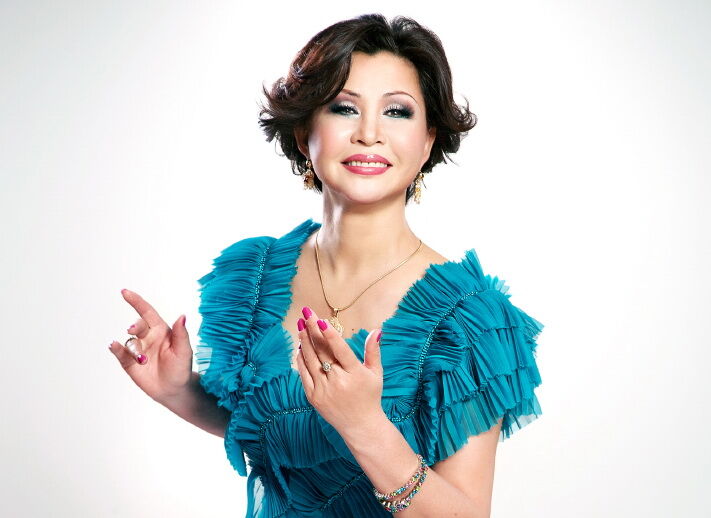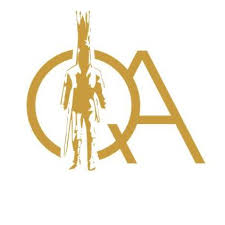
The warm welcome for the esteemed guest, who had traveled from afar, began the moment she stepped off the plane and lasted for nearly a week. Roza Rymbayeva, who has served as a cultural bridge between her homeland and Kazakh compatriots abroad through her music, held three concerts at the Bayan-Ölgii Provincial Musical Drama Theatre from February 4 to 8 and delivered a grand performance at the 1,300-seat Central Cultural Palace in Ulaanbaatar, bringing great joy to the audience. The renowned singer Roza Rymbayeva and the main organizer of this tour, poet and composer Yasira Zakhankyzy, visited our editorial office to share their impressions of the unforgettable days spent among the Kazakh community in a country with a similar culture and way of life.
– Roza Kuanyshkyzy, as we followed your five-day journey, we realized that this was your first visit to Mongolia. Having traveled to many countries worldwide, what was the reason you had not visited this neighboring state before?
– The decision to go on a concert tour to any country is not made solely by me. I am not a singer who chooses where to go. It is not in my nature to request an invitation. I have always followed the Kazakh proverb: “If you are not invited, do not go; if invited, do not refuse,” which emphasizes honor and dignity. I am an artist under Qazaqconcert, which operates under the Ministry of Culture and Information, and a performer with the pop-symphony orchestra under the Almaty city administration. This time, I did not visit Mongolia upon an official invitation from the government. I had noticed that many of my fellow artists had visited Bayan-Ölgii over the years. One day, I mentioned to Yasira Zakhanqyzy, “Many are going to Mongolia, why has no one invited me?” She reassured me, saying, “Don’t worry, I will take you there myself.” Yasira was born in Bayan-Ölgii and has lived in Kazakhstan for over thirty years. She knows both countries well. Even before we arrived, tickets for two concerts had already sold out. Due to high demand and public outcry, we decided to hold a third concert. I did not want our fellow Kazakhs to be left disappointed. The tickets for the third concert sold out within four to five hours.
Thus, we performed three concerts in a row at the Bayan-Ölgii Musical Drama Theatre, fulfilling the audience’s expectations and receiving their heartfelt appreciation.
– As an observer, what was your impression of our Kazakh compatriots in Mongolia? Did you get a sense of their mood, social conditions, and cultural life?
– In Bayan-Ölgii, 90% of the population is Kazakh. The schools teach in Kazakh, and the language, culture, and traditions have been fully preserved. The upbringing of children and youth is distinctly Kazakh. I felt as if I had visited a province in my own country. There is also a significant Kazakh intellectual community in Ulaanbaatar. We witnessed this during our concert at the Central Cultural Palace in Mongolia’s capital. Currently, five Kazakh representatives serve as members of the Mongolian Parliament. Many Kazakh scholars and professors, who have studied in the U.S. and Europe, teach at leading universities in Ulaanbaatar. Kazakh entrepreneurs engaged in large-scale business also play a prominent role. Mongolian is the state language, but English is widely used. I was impressed by the Mongolian people’s cultural etiquette, cleanliness, and mannerisms in public spaces. Near Ulaanbaatar, there is a mining town where many Kazakhs work. There, we saw a grand Kazakh mosque standing tall. We spent a considerable amount of time talking with the miners and other compatriots. I also had the chance to meet with Kazakh scholars, doctors, and intellectuals. This was an unforgettable experience in my life.
– Many elders wearing traditional white headscarves and fur hats came out to welcome you. The Kazakh tradition of honoring a guest from afar seems to be well-preserved there, doesn’t it?
– When I saw the horsemen approaching with eagles on their arms, my heart nearly burst with emotion, and tears welled up in my eyes. Their warm welcome, their longing for their homeland, and their deep respect for me as a Kazakh artist overwhelmed me. I couldn’t hold back my tears.
– What stood out to you the most during these encounters?
– While not all Kazakh expatriates live in luxury, in Mongolia, there is no discrimination between Kazakhs and Mongols. There is no second-class treatment, nor is there any overt or covert oppression. Kazakhs hold equal rights with the local population and are actively engaged in government service, lawmaking, social sectors, business, arts, and culture. Many have achieved significant recognition. During my concerts, I met audiences who knew my entire repertoire, from “Aliya” to “Tsveti, zemlya”, by heart. I designed my concert program around songs that people were familiar with. I performed compositions by Shamshi Qaldaiaqov, Nurgisa Tilendiev, Aset Beiseuov, Seidolla Baiterekov, and Janbota Tuiaqbaev. The audience sang along with me. I also performed Mongolian songs, including “Minij eejee” (“My Mother”), which is as beloved in Mongolia as “Ananyn jairi” (“A Song About Mother”) is in Kazakhstan. Additionally, I sang Kazakh folk songs. My goal was to perform what the audience wanted to hear. Over three concerts, I performed 60 songs. It was an intense experience, but the energy I received from our compatriots was beyond compare.
– Roza Kuanyshkyzy, you are not just a singer but an actress-singer. What distinguishes an actress-singer from an ordinary singer?
– Acting and singing are my profession. I studied theater and film acting and have worked in this field professionally for fifty years. I incorporate acting into my vocal performances. Rather than just showcasing my vocal range, I immerse myself in character and deliver songs as an actress. In Soviet-era pop music, only a handful of performers combined acting and singing, such as Lyudmila Gurchenko, Alla Pugacheva, and Lolita Milyavskaya. In Kazakh pop music, I became recognized as an actress-singer. Today, I am a professor at the T. Zhurgenov Kazakh National Academy of Arts, where my students have gone on to perform in major theaters. This year, I am planning a concert titled “50 Years on Stage.” While the exact date is not yet set, I am mentally preparing to stand before my audience once again.
– Yasira Zakhankyzy, you and a small team undertook the monumental task of organizing this tour, something that typically requires a Ministry of Culture’s resources. If not for your efforts, would this concert have been delayed indefinitely?
– Roza Rymbayeva is a legendary figure who has represented Kazakh culture worldwide for half a century without compromising her artistic integrity. This was a historic journey. Despite it being her first time in Mongolia, she approached the tour with great responsibility and performed with utmost excellence. First, she amazed the local Kazakhs with her exceptional professionalism. Second, she touched hearts with her soulful songs, uplifting the people’s spirits. Third, her authentic Kazakh identity and natural charm won over the audience.
We express our gratitude to the Sana Educational Center’s director, Bayan-Ölgii’s prominent public figure Sholpan Birdikhan, the talented young singer Saǵym Beibitshilikqyzy, Mongolia’s Ministry of Culture, members of Parliament, the Embassy of Kazakhstan in Mongolia, the Bayan-Ölgii regional administration, and the local community for their support in organizing this tour at a high level.
– Thank you for sharing your experiences!
Interviewed by Aigul Akhanbaykyzy
«Egemen Qazaqstan»


